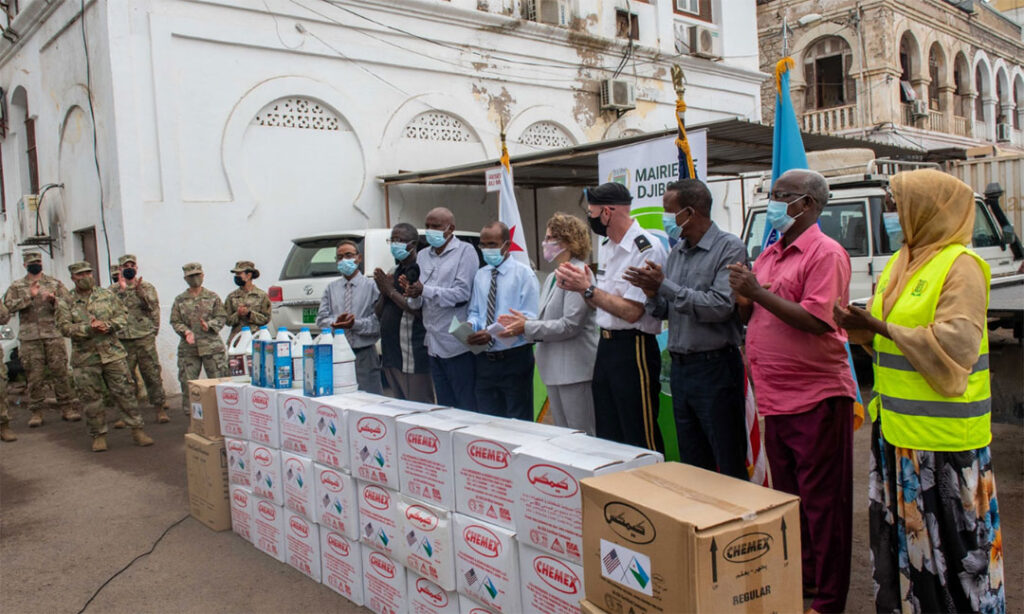ADF STAFF
The second half of 2020 saw Djibouti engineer a dramatic turnaround in its response to the COVID-19 pandemic, which at one time raged virtually unchecked.
Cases spiked rapidly in spring 2020 when the country had the continent’s highest rate of prevalence with 5,831 confirmed cases. But from the end of June to the end of December, there were just 780 cases.
The nation credited the improvement with a strategy that relied on establishing buffer zones at borders to prevent unauthorized crossings, expanding the diagnostic and isolation capacity of its largest hospital, and contact tracing. When a patient falls ill in Djibouti, health care workers test as many as 25 of that patient’s contacts.
“We have been able to contain the virus by identifying and isolating the sick quickly,” Dr. Houssein Youssouf Darar, infectious disease specialist in charge of the Djibouti’s COVID-19 response, told Jeune Afrique.
The United States has supported Djibouti throughout the pandemic and stepped up its efforts as 2020 ended.
“We continue to be very impressed with the success the minister of health and his team have had in the fight against this pandemic,” Ambassador Larry André said December 9 in highlighting a $50,000 donation of personal protective equipment (PPE) and monitoring equipment.
In all, the U.S. has contributed $5 million to support Djibouti’s pandemic response.
On December 2, U.S. Embassy staff delivered $16,000 in gloves, masks, disinfectant solution, hand-sanitizing solution, and hand-sanitizing stations to Djibouti’s National Office of Water and Sanitation. It was part of a pledge of $50,000 in supplies and equipment.
Most recently, the U.S. sent $50,000 in health supplies to the six districts of Djibouti City via the mayor’s office.
“This is the first donation the American people have made through the U.S. military to specifically support the work of the local government,” Deputy Chief of Mission Andrea Tomaszewicz said in a December 21 statement. “It includes cleaners, soaps, sanitizer, sanitization equipment and other public health materials that will directly contribute to the well-being of the residents of Djibouti City.”
Two days later, André announced a $2.5 million contribution from the U.S. Agency for International Development to Rising Djibouti, a program that aims to mitigate the socio-economic effects of the pandemic.
Earlier in the year, the U.S. donated $9,400 worth of hospital beds in Djibouti City, two PCR testing machines to dramatically improve the speed and accuracy of testing, an RNA extraction testing machine, and $250,000 in humanitarian assistance for vulnerable migrants and their host communities.
“We are all working to ensure that the COVID-19 virus does not compound the adverse effects of other diseases, such as malaria,” Tomaszewicz said. The donation given to the capital on December 21 was “originally to address COVID-19, though the supplies and equipment are just as useful in preventing colds, flus, malaria and other infectious diseases.
“Together, we are working to address the health challenges facing our communities.”

